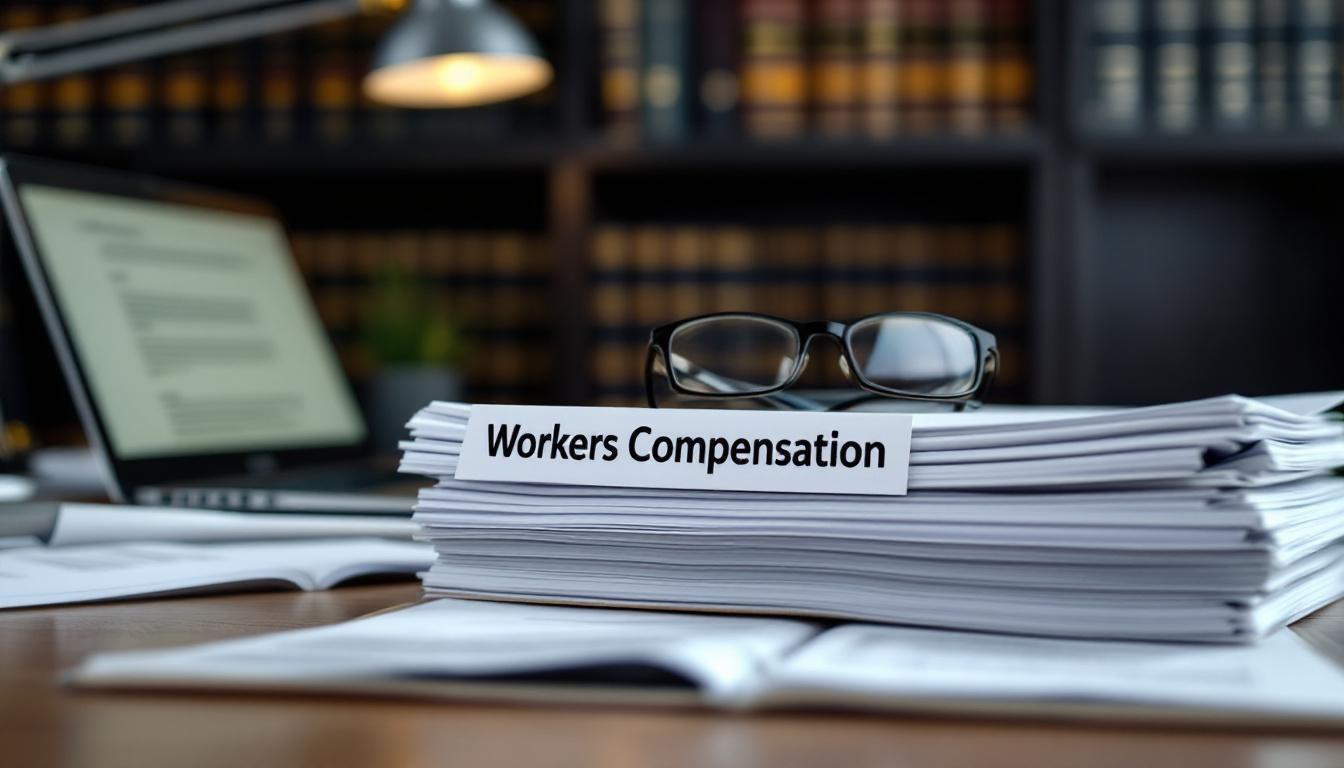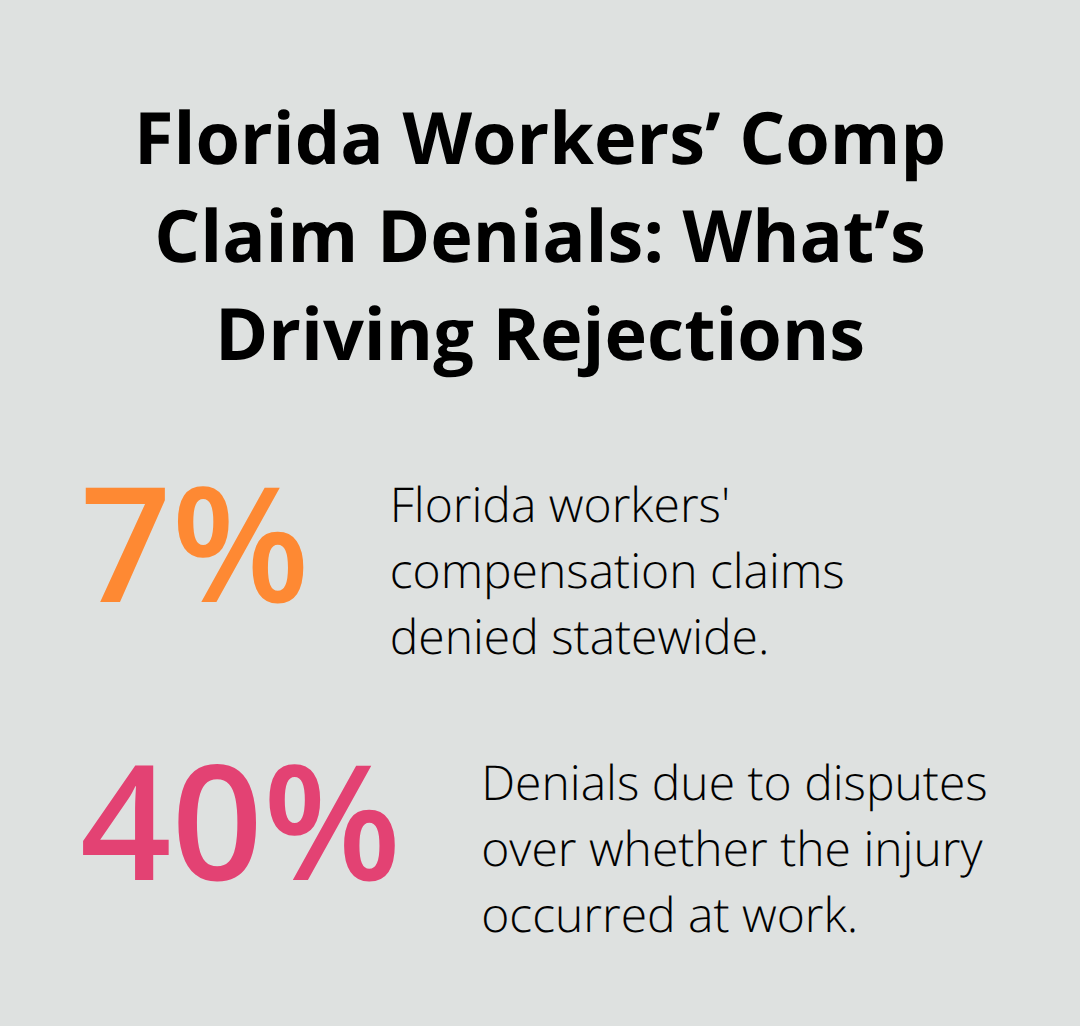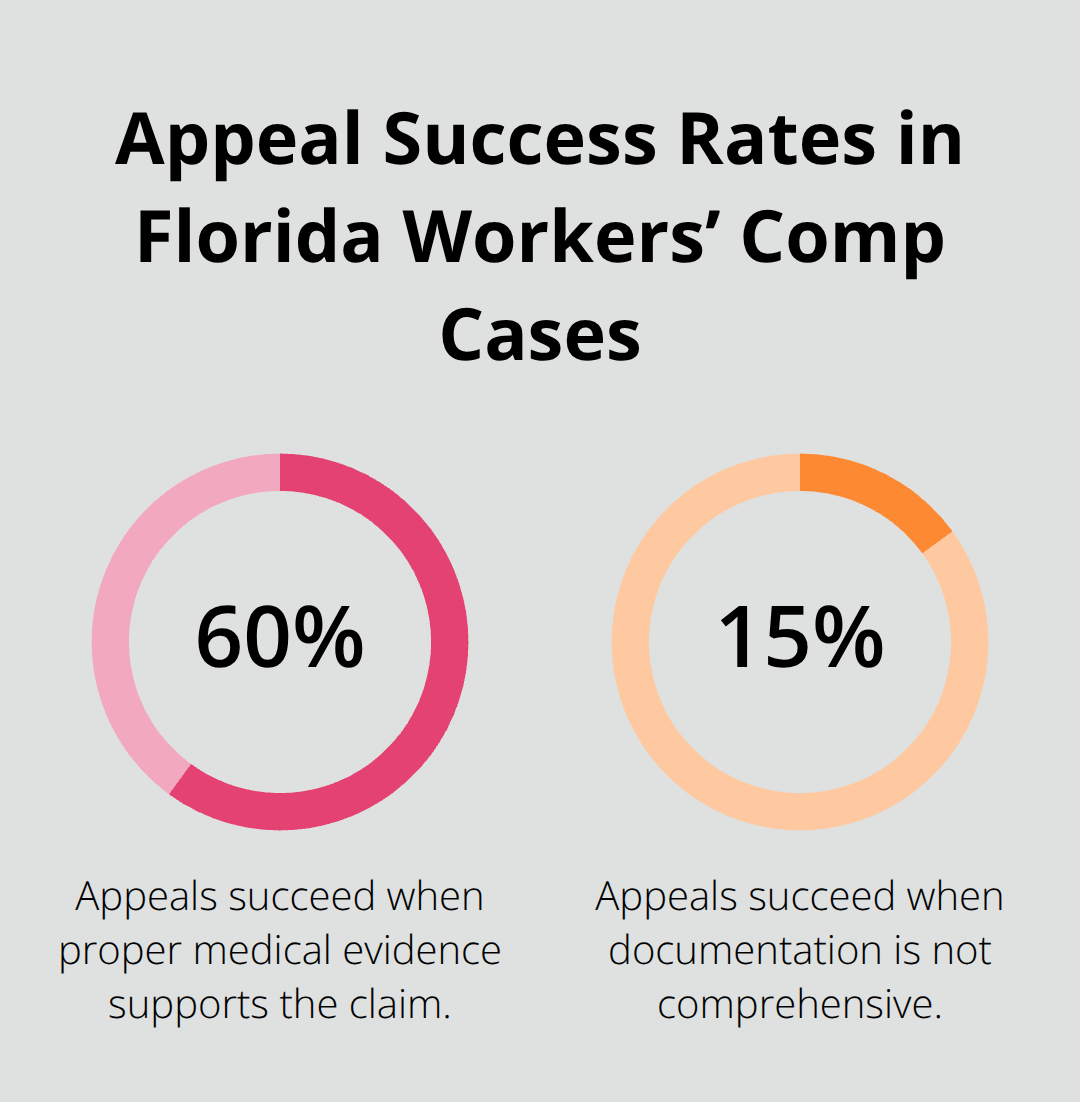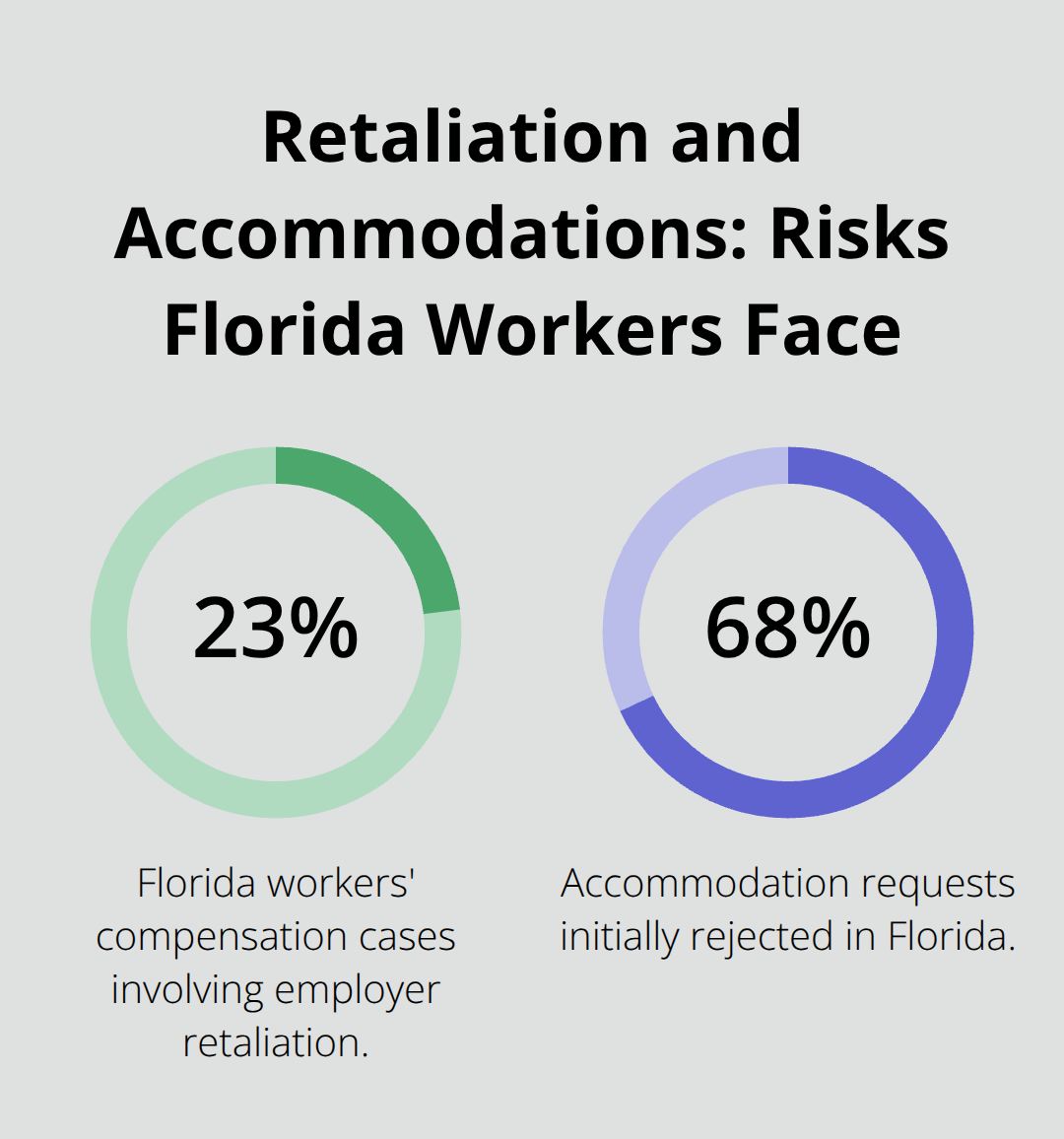Workers Compensation: When to Seek Legal Advice
Our Blog
Workers Compensation: When to Seek Legal Advice

Workers’ compensation claims should provide financial protection when workplace injuries occur. Unfortunately, the system doesn’t always work smoothly for injured employees in Melbourne, Florida.
Many workers face claim denials, medical disputes, or employer retaliation during their recovery process. We at Harnage Law PLLC see these challenges daily and know when legal advice for workers’ compensation becomes necessary.
When Your Workers Compensation Claim Gets Denied
Claim denials affect approximately 7% of workers’ compensation cases in Florida, but this percentage jumps significantly in Melbourne due to insurance companies that aggressively challenge claims. The most frequent denial reason involves disputes over whether your injury actually occurred at work (accounting for nearly 40% of all rejections according to Florida Division of Workers’ Compensation data).

Insurance carriers also deny claims when medical records don’t clearly link your condition to workplace activities or when they question the severity of reported injuries.
Steps You Must Take After Denial
You must file your petition for benefits within 30 days of receiving the denial notice. This tight deadline cannot be extended, and missing it forfeits your right to appeal. Contact the Division of Workers’ Compensation immediately to request your complete claim file, which contains all medical records and correspondence between your employer and their insurance carrier. Document every interaction with insurance representatives and save all written communications, as these become evidence during your appeal process.
How to Build Your Appeal Strategy
Medical documentation forms the backbone of successful appeals in Florida workers’ compensation cases. Request independent medical evaluations from physicians who understand occupational injuries and can clearly establish the connection between your work duties and current condition. Gather witness statements from coworkers who observed your injury or can testify about hazardous workplace conditions.
Appeals succeed in roughly 60% of cases when proper medical evidence supports the claim, compared to just 15% success rate for appeals that lack comprehensive documentation. However, even with strong medical evidence, complex medical issues and permanent disabilities present additional challenges that require careful navigation through Florida’s workers’ compensation system.

Complex Medical Issues and Permanent Disabilities
Pre-existing medical conditions create the biggest obstacle in Melbourne workers’ compensation cases, with Florida Division of Workers’ Compensation data showing that 45% of disputed claims involve arguments about whether workplace injuries worsened existing health problems. Insurance companies routinely hire medical reviewers who attempt to attribute all symptoms to pre-existing conditions rather than workplace incidents. The key lies in obtaining medical opinions that clearly separate your baseline condition from work-related deterioration. Florida Statute 440.09 requires employers to take workers as they find them, meaning they remain liable even when workplace injuries worsen pre-existing conditions.
Independent Medical Examinations Change Everything
Insurance carriers schedule independent medical examinations to minimize their financial exposure, and these doctors often produce reports that favor the insurance company’s position. These examinations occur in approximately 35% of Florida workers’ compensation cases (according to state records). You have the right to bring a witness, record the examination, and obtain copies of all medical reports within 14 days. More importantly, you can request your own independent medical evaluation from physicians who understand occupational medicine and can provide objective assessments of your work-related injuries.
Disability Ratings Determine Your Financial Future
Permanent disability ratings directly control your long-term benefits, with each percentage point affecting thousands of dollars in compensation. Florida uses the American Medical Association Guides to determine impairment ratings, but insurance doctors frequently underestimate disability levels to reduce payouts. Workers with spine injuries face particular challenges, as these complex cases often involve ratings between 5% and 25% whole person impairment. The difference between a 10% and 20% rating can mean $50,000 or more in lifetime benefits. Medical evidence must demonstrate functional limitations, not just diagnostic findings, to secure accurate disability ratings that reflect your actual work capacity limitations.
These medical battles often intensify when employers begin pressuring injured workers to return to work prematurely or retaliate against those who file legitimate claims.
Employer Retaliation and Return-to-Work Problems
Employer retaliation occurs in 23% of Florida workers’ compensation cases according to the Florida Division of Workers’ Compensation, with Melbourne employers frequently using subtle intimidation tactics that violate state labor laws. Florida Statute 440.205 prohibits any form of retaliation, including termination, demotion, harassment, or reduced hours after you file a workers’ compensation claim.

Common retaliation tactics include scheduling you for shifts you cannot physically handle, assigning impossible tasks given your medical restrictions, or creating hostile work environments through supervisor harassment. Employers also retaliate by refusing to provide modified duties that accommodate your medical limitations, even when physicians clear you for light-duty work.
Recognizing Illegal Retaliation Tactics
Supervisors often use passive-aggressive methods to pressure injured workers into quitting or withdrawing their claims. They may suddenly scrutinize your work performance, write you up for minor infractions they previously ignored, or exclude you from team meetings and workplace communications. Some employers transfer injured workers to less desirable locations or shifts (making commutes difficult or impossible). Others create paper trails of disciplinary actions that never existed before your injury claim. These tactics violate Florida law and create grounds for additional legal action beyond your workers’ compensation benefits.
Workplace Accommodation Disputes
Florida law requires employers with 15 or more employees to provide reasonable accommodations during your recovery period, yet 68% of accommodation requests face initial rejection according to state employment data. Employers must engage in interactive dialogue about possible modifications, including adjusted schedules, ergonomic equipment, or temporary duty reassignments. Document every accommodation request in writing and keep copies of all medical restrictions from your treating physician. When employers refuse reasonable accommodations without legitimate business justification, they violate both workers’ compensation laws and Americans with Disabilities Act provisions.
Protecting Your Job During Recovery
Florida maintains at-will employment, but this does not override workers’ compensation protections that shield you from retaliatory termination. Keep detailed records of all workplace interactions, supervisor comments, and changes to your job duties or schedule after you file your claim. Report retaliation incidents immediately to the Division of Workers’ Compensation and file complaints with the Equal Employment Opportunity Commission when appropriate. Workers who successfully prove retaliation can recover lost wages, reinstatement, and additional damages beyond their original workers’ compensation benefits, making documentation of employer misconduct financially valuable for your case.
Final Thoughts
Several warning signs indicate when you need legal advice for workers’ compensation cases in Melbourne. Your claim faces denial, medical disputes over pre-existing conditions, or employer retaliation all signal the need for professional legal guidance. Insurance companies deny claims in 7% of Florida cases, but this rate increases significantly when workers lack legal representation.
Legal counsel dramatically improves your compensation outcomes. Workers with attorneys recover 40% more in benefits compared to those who navigate the system alone (according to Florida Division of Workers’ Compensation data). We at Harnage Law PLLC understand Florida’s workers’ compensation laws and fight aggressively for injured workers’ rights.
You must take immediate action to protect your financial future. Florida’s 30-day appeal deadline cannot be extended, and you forfeit your right to benefits when you miss critical deadlines. Harnage Law PLLC provides experienced legal representation for Melbourne workers who face compensation challenges.
